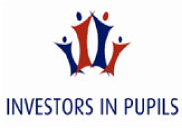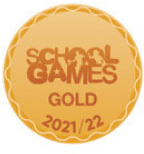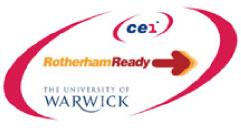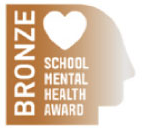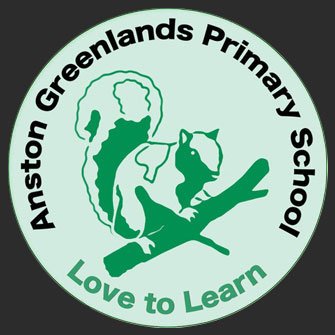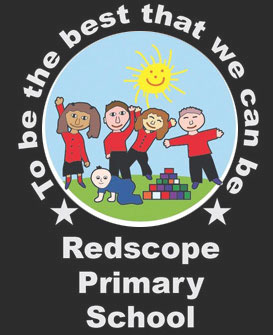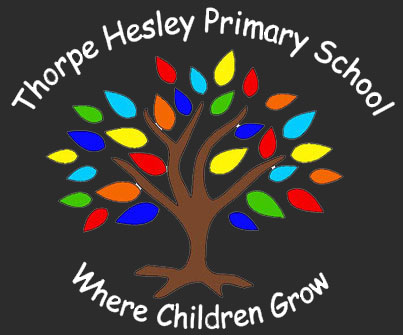At Anston Greenlands Primary School all of our classes are named after birds. We are known as Wrens, but we are also referred to as Foundation Stage 2 or the Reception class. Prior to starting with us, children attend a variety of Foundation Stage 1 settings (preschools, nurseries and childminders).
Intent
At Anston Greenlands Primary our whole school core intent is to develop a ‘Love of Learning’ . In EYFS our intent is also to ensure all children build on prior learning in a caring, nurturing environment which allows them to reach their full potential. Children learn by exploring, experiencing and working together to develop their skills and knowledge preparing them for their next steps in their learning.
Our school has a great outdoor learning environment and this is reflected within our curriculum. We take advantage of the opportunities our outside areas offer. We want our children to be fully involved in school, family and community life. We encourage our children to see themselves as a valued part of these and encourage them to begin contributing.
School Core Values
At Anston Greenlands we are all…
Creative
Resilient
Enthusiastic
Aspirational
Team Players
Expert
Implementation
The principles that guide our curriculum are taken from the Early Years Foundation Stage (EYFS) Framework . They are grouped into 4 themes:-
- A unique child
- Positive relationships
- Enabling Environments
- Learning and Development
The EYFS Curriculum consists of the seven areas of Learning and Development. There are three prime and four specific areas.
The three prime areas of learning are:
- Personal, Social and Emotional Development
- Communication and Language
- Physical Development
The four specific areas of learning are:
- Mathematics
- Literacy
- Understanding of the World
- Expressive Arts and Design
Each half term, EYFS staff introduce a new topic to provide inspiration for learning, whilst providing the flexibility for children to follow their own interests and ideas. Children learn through a balance of child-initiated and adult-directed activities.
The timetable is carefully structured so that children have directed teaching during the day. The timetable changes throughout the year to take into consideration the changing needs of the children. These sessions are followed by small focused group work. This means that the teacher/teaching assistant can systematically check for understanding, identify and respond to misconceptions quickly and provide real-time verbal feedback which results in a strong impact on the acquisition of new learning.
Children are provided with plenty of time to engage in ‘exploration’ throughout the variety of experiences carefully planned to engage and also challenge them in the provision. The curriculum is planned for the inside and outside environments, and equal importance is given to learning in both areas.
English / Literacy
Reading is at the heart of our curriculum and our aim is to encourage a love of reading right from the start. In EYFS we have ’15 Reading Spine Books’. The aim is to expose children to a range of books that not only develop a love of reading, but have been chosen specifically to develop their oracy, vocabulary and comprehension. These books are also embedded in our provision, through activities, story sessions, placed on display for children to access independently and also sent home to share. Through this, children begin to internalise new vocabulary, language patterns and begin to retell stories.
There is cohesion and consistency with our approach to align with the whole school Literacy.
- The inclusion of high-quality texts which are age and stage appropriate
- Modelled reading and re-telling opportunities
- Structured comprehension questions
- A focus on vocabulary
- Dedicated phonics sessions, employing tricky and high-frequency words
- Cooperative learning behaviours which develop oracy and interdependence
Here are the Key workers in Wrens reading their favourite stories.
Mrs Briggs (Nursery Nurse)- loves the story ‘Farmer Duck’
Mrs Marriott (FS2 Class Teacher) – loves the story ‘Rumble in the Jungle’
Phonics
We follow the Little Wandle Letters and Sounds systematic synthetic phonics programme to ensure consistency across the school. In Reception, Phase1 continues for the first couple of weeks of school, but then children are introduced to Phase 2 and 3 where they learn GPC’s and learn how to segment and blend words. During the summer term, children move on to Phase 4 if they are ready.
We use these phonics resources (see below) to support children during their literacy/phonics lessons and also when accessing continuous provision. These are also sent home for parents/carers to use to support home-learning tasks.
Children are encouraged to read at home at least three times a week and are listened to in school. Before Christmas this is 1-1, and this then develops into whole group guided reading sessions after Christmas or when children are able to sound-talk and blend some words. These sessions take place three times a week. The first session works on sound-talk and blending, the second session works on prosody and the final session works on comprehension. Children are given books that match their phonic knowledge in order for them to apply their learning with the aim of becoming successful, confident and fluent readers.
Mathematics
In Reception, we follow the White Rose Maths Scheme of work. High quality learning environments and meaningful interactions with adults, support children in developing mathematical thinking and discussion. Pupils learn through games and tasks using concrete manipulatives and pictorial structures and representations which are then rehearsed applied and recorded within their own child-led exploration. They are then asked to solve problems where they only have the abstract i.e. numbers or other symbols, when ready. Building these steps across our lessons helps children understand the relationship between numbers and the real world, and therefore helps secure their understanding of the mathematical concept they are learning.
The Wider Curriculum
Our wider curriculum is taught through the learning areas; ‘Understanding of the World’ and ‘Expressive Arts and Design.’ EYFS staff have a good understanding of how ELG’s feed into the National Curriculum through our robust planning and CPD opportunities. In reverse, colleagues throughout the school are also aware of the key ELG’s that link to each foundation subject and the progression of the subject.
Exciting, purposeful and contextual activities are planned to build on children’s natural curiosity. For example, building a bridge for the ‘Three Billy Goats Gruff’ to cross enables them to think like a ‘Scientist’ and ‘Engineer’ as they explore a range of materials and test out their own ideas.
Building further on our oracy focus, children will be encouraged to employ subject specific language and terminology in foundation subjects, and such vocabulary will be modelled, both verbally and orally, by supporting practitioners.
Our inclusive approach means that all children learn together, but we have a range of additional intervention and support for children who may not be reaching their potential, or are showing a greater depth of understanding and need further challenge. This includes, for example, sessions for developing fine motor skills, phonics, and mathematics.
Impact
With a thorough knowledge of our curriculum, the Early Learning Goals and the children in our EYFS setting, we assess the children through discussion and questioning, observation, and direct teaching sessions. A record of their learning is made, noting their progress and planning for the next steps in their learning. We have class floor books for Knowledge and Understanding of the World and Personal Social and Emotional. Then each child has a physical learning journal and we use the EMAG to track and record children’s progression. These are then used to identify areas for development. This is shared with parents/carers at our parent’s evenings, and contributions from parents and carers are welcomed through WOW slips. CLICK HERE .
Our provision and the delivery of our curriculum is regularly monitored, reviewed and revisited to ensure our aims are met and the children’s knowledge and learning is secure.
Baseline
Prior to children starting, staff spend time speaking to the child’s parents at home-visits, previous settings and read previous learning journey’s to gain an understanding of the whole child and where they are at. During the first few weeks in Reception, staff use ongoing assessments, WOW slips – short observations and conversations with the child to develop a baseline assessment. This identifies each individual’s starting points in all areas so we can plan experiences to ensure progress. The following baseline
assessments are also carried out.
The RBA (Statutory Reception Baseline Assessment)
This assessment focuses on ‘Language, Communication and Literacy,’ and ‘Mathematics.’
Ongoing Observation
‘Magic Moment’ slips, short observations from focus tasks/lessons or when children are independently accessing continuous provision are used to inform weekly planning and identify children’s next steps. This formative assessment does not involve prolonged periods of time away from the children and excessive paper work. EYFS staff draw on their knowledge of the child and their own expert professional judgements through discussions with other practitioners and parents/carers, photographs and physical examples such as a child’s drawing / making. Some examples are kept in individual learning journeys or displayed on the school webpage.
Assessment
Phonic assessments are carried out after five weeks to quickly identify pupils that are not making expected progress. Our aim is for children to ‘keep up’ rather than ‘catch up’ where possible. In Summer Term 2, the EYFSP is completed where teacher judge whether the child has met each of the 17 ELG’s. They will be assessed as either ‘emerging’ or ‘expected.’
At the end of their year in Foundation Stage 2, we believe that our children will be confident, enthusiastic learners; they will have developed a wide range of skills and knowledge, including in writing, reading and maths, and will be ready for the next stage of their learning in Key Stage I. We believe that they will have had plenty of memorable experiences and that they will feel a sense of belonging to the Anston Greenlands family.




